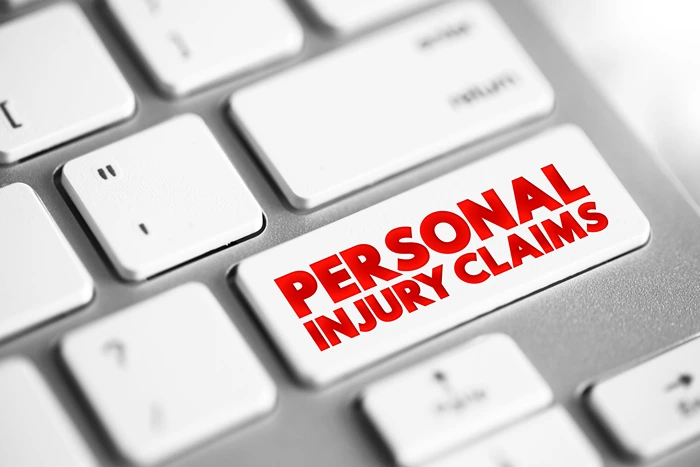Would you believe that over 90% of web traffic goes to websites on the first page of Google search results? For personal injury lawyers, this statistic is not just an alarming fact—it’s a call to action. In today’s digital landscape, having a robust SEO strategy is crucial for increasing online visibility and attracting more clients. This blog will delve into the key components of effective SEO for personal injury lawyers, offering actionable insights to ensure your online presence stands out amidst fierce competition.
Why Personal Injury Lawyer SEO is Crucial
SEO for personal injury law firms plays a pivotal role in boosting online visibility and client acquisition. By optimizing their websites, personal injury lawyers can ensure they appear prominently in search engine results, where potential clients are actively seeking legal assistance. Research shows that websites on the first page of Google capture roughly 90% of web traffic, underscoring the importance of a strong SEO presence.
The legal industry is intensely competitive, with numerous firms vying for the same clients. Achieving a first-page ranking on Google is crucial for standing out in this crowded field. Without effective SEO, personal injury lawyers risk being overlooked by potential clients who typically do not venture beyond the first page of search results.
An effective SEO strategy for personal injury lawyers encompasses several key components:
- Keyword Research: Identifying the terms and phrases potential clients use to find legal services.
- On-Page Optimization: Ensuring that the website’s content and structure are search-engine friendly.
- Local SEO: Targeting clients in specific geographic areas to improve local search visibility.
- Content Marketing: Creating high-quality, relevant content that addresses client concerns and questions.
- Backlink Building: Acquiring links from reputable websites to enhance domain authority and search engine rankings.
By incorporating these elements, personal injury lawyers can significantly improve their online presence, attract more clients, and ultimately grow their practice.
Conducting Effective Keyword Research for Personal Injury Lawyers
Keyword research forms the bedrock of personal injury lawyer SEO. By identifying the terms and phrases potential clients use, such as “slip and fall personal injury law attorney” or “motorcycle accident lawyer in [City],” lawyers can tailor their online content to match what prospective clients are searching for. This alignment increases the chances of appearing in relevant search results, thereby boosting visibility and attracting more clients. Effective keyword research not only helps in understanding client search behaviour but also aids in prioritising content creation and optimisation efforts.
To conduct keyword research effectively, personal injury lawyers can utilise several specialised tools. Google Keyword Planner, SEMrush, Ahrefs, and Moz are among the most popular and powerful options available. These tools provide valuable insights into search volumes, keyword difficulty, and competition levels, enabling lawyers to select the most impactful keywords for their practice. By leveraging these tools, lawyers can uncover high-value keywords that strike a balance between search volume and competition, ensuring their content has the best chance of ranking well in search engine results.
- Google Keyword Planner: Free tool offering keyword ideas and search volume data.
- SEMrush: Comprehensive tool with keyword tracking, competitive analysis, and site audit features.
- Ahrefs: Known for its extensive backlink database and keyword difficulty analysis.
- Moz: Offers keyword suggestions, SERP analysis, and site audit capabilities.
| Keyword Tool | Features |
| Google Keyword Planner | Keyword ideas, search volume, and competition data |
| SEMrush | Keyword tracking, competitive analysis, site audits |
| Ahrefs | Backlink database, keyword difficulty, rank tracking |
| Moz | Keyword suggestions, SERP analysis, site audits |
On-Page SEO Techniques for Personal Injury Lawyer Websites

On-page SEO is crucial for personal injury lawyer websites to enhance visibility and improve search engine rankings. This type of SEO focuses on optimising individual web pages to rank higher and gain more relevant traffic from search engines. By implementing on-page SEO techniques, personal injury lawyers can ensure their websites are structured in a way that search engines understand, making it easier for potential clients to find them. Key aspects of on-page SEO include setting up Google Search Console and Google Analytics 4, optimising title tags and meta descriptions with target keywords, using header tags for content structure, and properly labelling images with descriptive file names and alt text.
Specific on-page SEO techniques for personal injury lawyer websites involve a meticulous approach to content and site architecture. Setting up Google Search Console and Google Analytics 4 provides valuable insights into website performance and user behaviour, enabling lawyers to make data-driven decisions. Optimising title tags and meta descriptions with relevant keywords ensures that web pages are accurately represented in search results, attracting more clicks. Header tags (H1, H2, H3) should be used to break down content into easily digestible sections, improving readability and SEO. Additionally, properly labelling images with descriptive file names and alt text helps search engines index visual content, enhancing the overall SEO performance of the website.
- Keyword-rich Title Tags: Ensure each page has a unique, descriptive title tag incorporating relevant keywords.
- Meta Descriptions: Write compelling meta descriptions that include target keywords and encourage clicks.
- Header Tags: Use H1, H2, and H3 tags to structure content and highlight key points.
- Image Optimisation: Use descriptive file names and alt text for images to improve indexing.
- Internal Linking: Link to other relevant pages within the website to enhance navigation and SEO.
Optimising Title Tags and Meta DescriptionsEffective title tags and meta descriptions are fundamental for on-page SEO. Title tags should be concise, accurately describing the page content while incorporating relevant keywords. Aim for around 55-60 characters to ensure the title is fully displayed in search results. Meta descriptions should complement the title tag, summarising the page’s content in 150-160 characters and including target keywords. A well-crafted meta description not only improves SEO but also increases the likelihood of searchers clicking through to the website.
Local SEO Strategies for Personal Injury Lawyers
Local SEO is crucial for personal injury lawyers aiming to attract clients within specific geographic areas. By optimising for local searches, lawyers can ensure that their services are visible to potential clients in their vicinity. Local SEO targets clients who are actively seeking legal assistance nearby, making it a highly effective strategy for personal injury practices. A significant part of local SEO involves creating and optimising a Google Business Profile (GBP), ensuring consistent local citations, and gathering positive reviews. These elements help improve search visibility and build trust with potential clients.
To effectively leverage local SEO, personal injury lawyers should implement several key strategies. First, create and optimise a Google Business Profile to enhance local search presence. Ensure that all business information, including address, phone number, and hours of operation, is accurate and up-to-date. Second, local citations across various online directories should be consistent to avoid any confusion and improve search rankings. Third, gather positive reviews from satisfied clients, as these reviews influence both search rankings and client trust. Fourth, discover and incorporate location-specific keywords into website content to attract local clients. Lastly, manage and update the Google Business Profile regularly to reflect any changes in business operations or services offered.
- Create and Optimise Google Business Profile
- Ensure Consistent Local Citations
- Gather Positive Reviews
- Use Location-Specific Keywords
- Regularly Update Google Business Profile
Optimising Google Business Profile
Creating and optimising a Google Business Profile is essential for local SEO success. First, ensure that the profile includes accurate and comprehensive information about the law firm, such as address, phone number, and business hours. High-quality images of the office and team can also enhance the profile. Next, select appropriate business categories and services to make it easier for potential clients to find the firm. Regularly update the profile with new information or changes in business operations. Gathering and responding to client reviews on the profile is also crucial, as positive reviews can boost search rankings and build client trust.
Content Marketing for Personal Injury Lawyers
Content marketing is a pivotal aspect of SEO, particularly for personal injury lawyers. By creating informative and relevant content that addresses client questions or concerns, lawyers can significantly enhance their online presence. This form of marketing not only attracts potential clients but also positions the law firm as an authority in personal injury law. Effective content marketing strategies involve producing high-quality blog posts, detailed service pages, case studies, and FAQs. Regularly updating these types of content can improve SEO rankings, increase web traffic, and ultimately lead to more client conversions.
To maximise the benefits of content marketing, personal injury lawyers should focus on creating content that resonates with their target audience. Blog posts that delve into common legal questions, detailed service pages that explain specific legal services, case studies that highlight successful outcomes, and FAQs that address frequent client inquiries are all valuable. By consistently providing useful and relevant information, lawyers can build trust with potential clients and improve their search engine rankings. Additionally, integrating target keywords naturally within the content can further boost SEO performance.
- Blog Posts: Regularly updated articles on legal topics and client concerns.
- Detailed Service Pages: In-depth descriptions of legal services offered.
- Case Studies: Success stories that demonstrate expertise and results.
- FAQs: Answers to common questions to assist potential clients.
Developing a Blog Strategy
Creating a consistent and effective blog strategy is crucial for improving SEO rankings. Start by identifying the topics that are most relevant to potential clients. These could include explanations of legal processes, updates on personal injury law, or advice on what to do after an accident. Aim to publish new blog posts regularly, such as once a week or biweekly, to keep the content fresh and engaging. Incorporate target keywords naturally within the blog posts to improve search engine visibility. Additionally, ensure that each post is well-researched, informative, and provides value to the reader, which will help establish the law firm as an authoritative source in personal injury law.
Building Backlinks for Personal Injury Lawyer Websites

Backlinks are essential for SEO as they signal to search engines that your content is credible and valuable. For personal injury lawyers, acquiring high-quality backlinks can significantly enhance their website’s domain authority and improve search engine rankings. Backlinks act as endorsements from other reputable websites, helping to build trust and credibility. The more high-quality backlinks a website has, the more likely it is to rank higher in search results, attracting more potential clients.
To build high-quality backlinks, personal injury lawyers can employ several strategies. Guest posting on reputable legal blogs or industry-specific websites is an effective way to gain backlinks while sharing expertise. Collaborations with local newspapers or online publications can also yield valuable backlinks. Another strategy is to participate in local community events or sponsorships, as these often lead to mentions and backlinks from community websites. Additionally, monitoring and maintaining a healthy backlink profile using tools like Ahrefs and Moz ensures that the links remain valuable and relevant, helping to sustain long-term SEO benefits.
- Guest Posts: Write articles for reputable legal blogs or industry-specific websites.
- Local Collaborations: Partner with local newspapers or online publications for feature articles.
- Community Involvement: Participate in or sponsor local events to gain mentions and backlinks.
- Backlink Monitoring: Use tools like Ahrefs and Moz to maintain a healthy backlink profile.
Monitoring and Adjusting SEO Strategies for Personal Injury Lawyers
Monitoring SEO performance is crucial for personal injury lawyers because it ensures that their strategies are effective and aligned with current search engine algorithms and legal trends. SEO is not a one-time effort; it requires ongoing evaluation and modification to maintain and improve search rankings. By continuously monitoring SEO performance, lawyers can identify which tactics are working and which need adjustment, thereby ensuring that their online presence remains strong and competitive.
Tools like Google Analytics and Ahrefs are indispensable for tracking SEO performance metrics. Google Analytics provides insights into website traffic, user behaviour, and conversion rates, helping lawyers understand how visitors interact with their site. Ahrefs, on the other hand, offers detailed information on keyword rankings, backlink profiles, and competitor analysis. These tools enable personal injury lawyers to gather comprehensive data about their SEO efforts, making it easier to pinpoint areas for improvement and measure the impact of any changes made.
Adjusting SEO strategies based on performance data involves a systematic approach. Start by conducting a thorough SEO audit using tools like Ahrefs to identify any technical issues, such as broken links or slow page load times. Next, review keyword performance to ensure that the targeted terms are still relevant and effective. If certain keywords are underperforming, consider optimizing existing content or creating new content to better address search intent. Additionally, regularly update and expand backlink profiles to maintain a strong domain authority. By making data-driven adjustments, personal injury lawyers can continuously refine their SEO strategies, ensuring long-term success and increased visibility in search engine results.
Final Words
In the action, personal injury lawyer SEO proves indispensable for enhancing online presence and securing clients. Understanding its intricacies, from keyword research and on-page optimisation to local SEO and content marketing, offers a substantial competitive edge. Building backlinks solidifies online credibility and boosts rankings.
Effective implementation requires patience and ongoing adjustments. Initial results appear in 3-6 months, with significant improvements over 6-12 months. For personal injury lawyers, prioritising SEO means not only remaining visible but thriving in a competitive digital landscape. Investing in personal injury lawyer SEO lays the groundwork for lasting success.

Emily is an environmental and tourism writer focused on sustainable travel, conservation efforts, and how Nepal’s natural wonders are being preserved for future generations.







